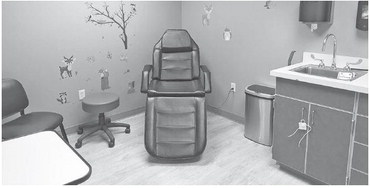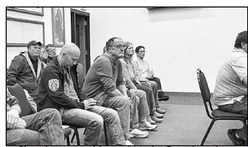Marathon school officials discuss Act 20 at meeting
By Hannah Alden
Officials at last week’s Marathon School Board meeting discussed the requirements of the 2023 Wisconsin Act 20, which may create some changes to the district’s literacy instruction.
The act, signed into law over the summer, focuses on literacy outcomes for younger students. According to a Wisconsin Legislative Council memo explaining the new law, it makes various changes to “early literacy instruction, curriculum, assessments and interventions, as well as teacher licensing and preparation.”
In addition to creating an Office of Literacy within the Department of Public Instruction (DPI) and a Council on Early Literacy, which will recommend sciencebased literacy curricula and instructional materials for use in grades kindergarten through third, one of the main changes included in the law is additional assessments for students. Students going into 4K will now be required to complete “fundamental skills screening assessments” to evaluate whether they possess phonemic awareness and letter sound knowledge at least twice each year. Prior law required schools to evaluate students in 4K through second grade for “reading readiness.”
Act 20 also requires schools to administer a “universal screening assessment” selected by DPI to assess early literacy skills in students in grades 5K through third. The screener, which will be required to be administered at least three times per year, will evaluate phonemic awareness, decoding skills, alphabet knowledge, letter sound knowledge and oral vocabulary.
Students who score below the 25th percentile on the universal screener will be identified as “at risk.” Schools will be required to utilize further diagnostic assessments, including additional testing and a family history survey, to help make a plan for the student’s learning moving forward.
While the new rules will not be fully implemented until 2025, the requirements have Marathon district officials wondering how they can be carried out and the effects on students. Marathon Area Elementary School and Marathon Venture Academy Principal Max Wienke said he doesn’t see yet how the additional testing data will be beneficial at the classroom level.
“Perhaps the biggest issue, I think, is going to be third grade,”Wienke said. “They’re not going to take away the Forward [exam] or our diagnostic testing. So our third graders now will have to take another test three times a year.”
Board member Beth Seubert added, “It just takes away from learning, those days spent on testing.”
The full scope of Act 20 spans further than additional testing. The law will create grants covering portions of the costs for districts to purchase required curriculum and instructional materials recommended by the council. It also establishes a Literacy Coaching Program within DPI with the intention for up to 64 coaches to work with schools to “build capacity to reading using science-based early reading instruction and increase the percentage of students reading at grade level by the end of third grade.”
Additionally, Act 20 will require elementary reading or language arts teachers to receive instruction on teaching “sciencebased literacy,” including through the use of phonics. It will prohibit teacher training to provide instruction on the three-cueing method in which students can gain meaning from context cues, grammatical features and spelling patterns.
According to Wienke, the list of recommended curriculums for elementary schools will be released on December 1.
“If you’re not on that list of curriculums, you don’t have to change, but they will separately release a list of 10 things that your curriculum must do and also a list of things that your curriculum cannot do,” Wienke said. “They have literally outlawed some teaching strategies.”
In other business:
• During the October 18 meeting, the school board and district staff discussed the proposed outdoor classroom to be located near the elementary/middle school. According to District Administrator Rick Parks, there has been around $10,000 donated toward the project, with $40,000 of the district’s ESSER funds being applied to it as well.
Parks said the solar panels for the installation are one of the biggest costs, with the panels alone estimated at $78,000 with another $45,000 required for installation. The reason the topic was brought up last week was the solar panel supplier is placing an order at the end of this month and, due to a turn-around time of about nine months, wanted to know if the district was set to move forward with the purchase.
After a brief discussion, the board opted to take up the topic again at a special meeting next week so they could have more time to gather additional information. A complete proposal for the entire project is expected in November, with bids possibly going out in January.
• The board reviewed recent enrollment data for the start of the 2023-24 school year. The district is seeing its largest overall student headcount, at 777 pupils, up from 751 last year. That number is then adjusted with the students open enrolling into the district (142 this year) being subtracted out and those open enrolling out (67 this year) being added back in, leaving the final adjusted headcount for the district at 702 students.
Open enrollment continues to grow in Marathon, despite caps added by the school board, with data from the 2007-2008 school year showing only 32 students coming into the district. By 2015-2016, open enrollment had climbed to 108 students. Open enrollment numbers going out have also risen, but not nearly as dramatically, with the 2007-2008 data showing 40 students leaving the Marathon district.




